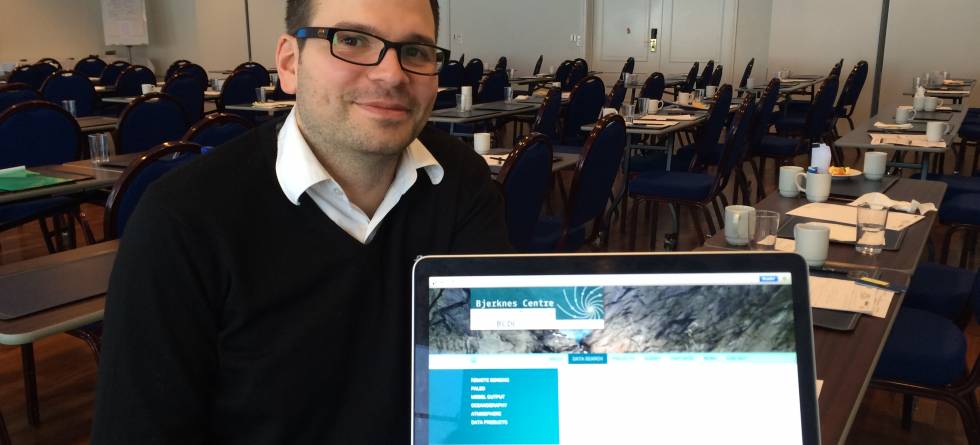The new Bjerknes Climate Data Centre archives, interconnects data and makes them publicly available, and you can find it both on the Bjerknesweb and via www.bcdc.no.
Here you can get access to data gathered by Bjerknes Centre scientists from various disciplines, mainly from the geology, oceanography and biology, and at a later stage data from the model and remote sensing community will become accessible as well.
–It makes our science weigh stronger when we make the backbone of our work available, providing others with an opportunity to verify and reproduce our science, datamanager Benjamin Pfeil says.
One of the aims is to provide an online access portal to climate data of all kinds and follow the idea of having a common globally interoperable distributed data system within the climate (change) community.
No wheels reinvented
Pfeil and associated professor Are Olsen have been working on setting up the data centre for a long time. Two years ago, the idea of the data centre was initiated by the Bjerknes Centre/ SKD, and last year two new datamanagers, Camilla Landa and Alexander Korablev, were hired at the UiB to work against the BCDC.
– The main aim is not to re-invent the wheel! We use existing infrastructure, open source software and adjust them to our needs. It will also be embedded in the worldwide data access network established by the International Council for Science, called World Data System.
Flexible search
The BCDC uses Elasticsearch as a search engine, a state-of-the art search engine, which can be used like Google. But there is also an advanced search function, with geo-spatial constraints and drill down facets on search results with categories defined in metadata, data set authors, projects.
– We are continuously working on updating and filling in data. We have 2000 datasets for now, maybe we have 500-800 more next year, Pfeil says.
More features, which will ease the ability to use the BCDC, like videos on how to find and retrieve data will be provided soon.

